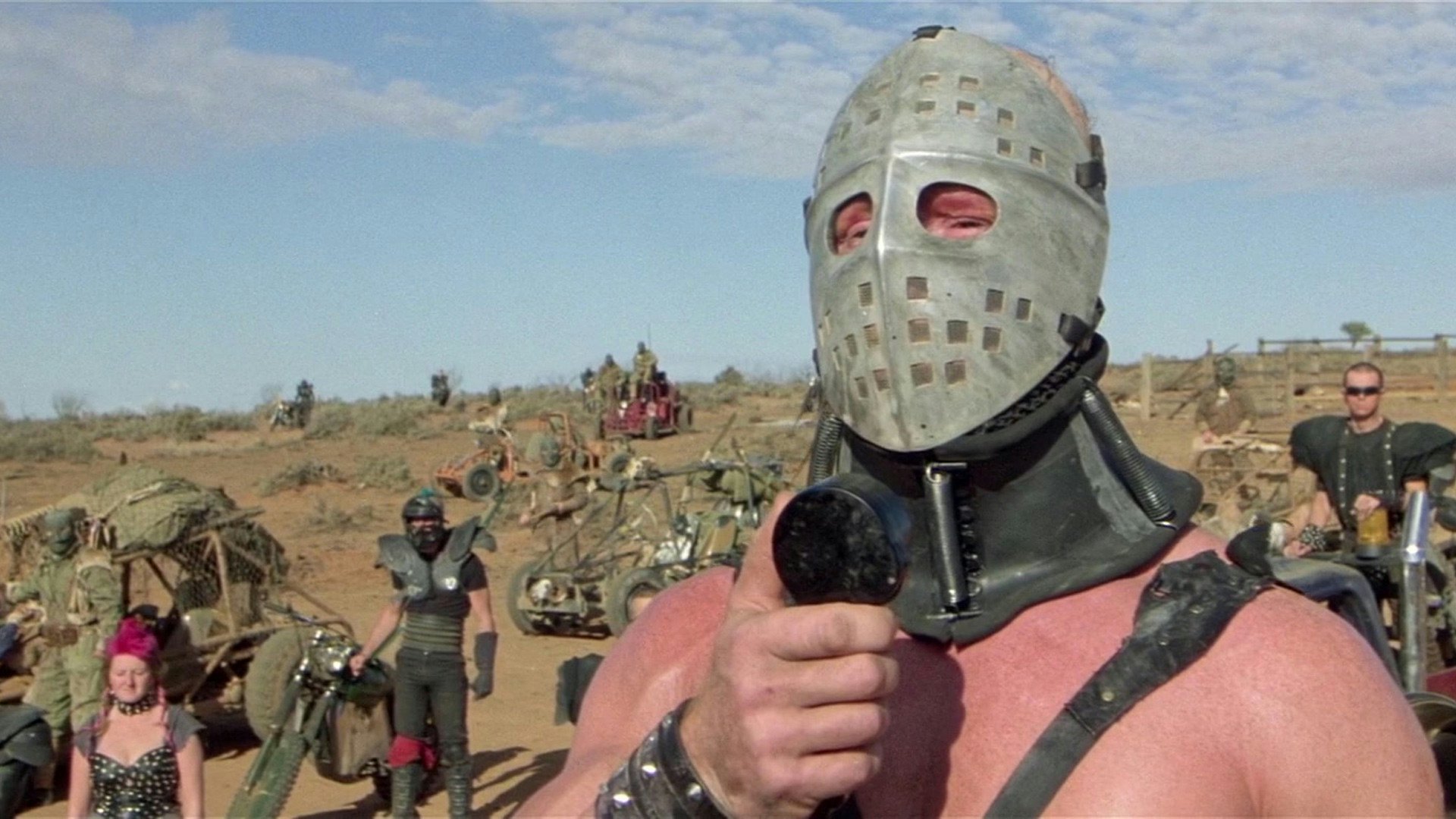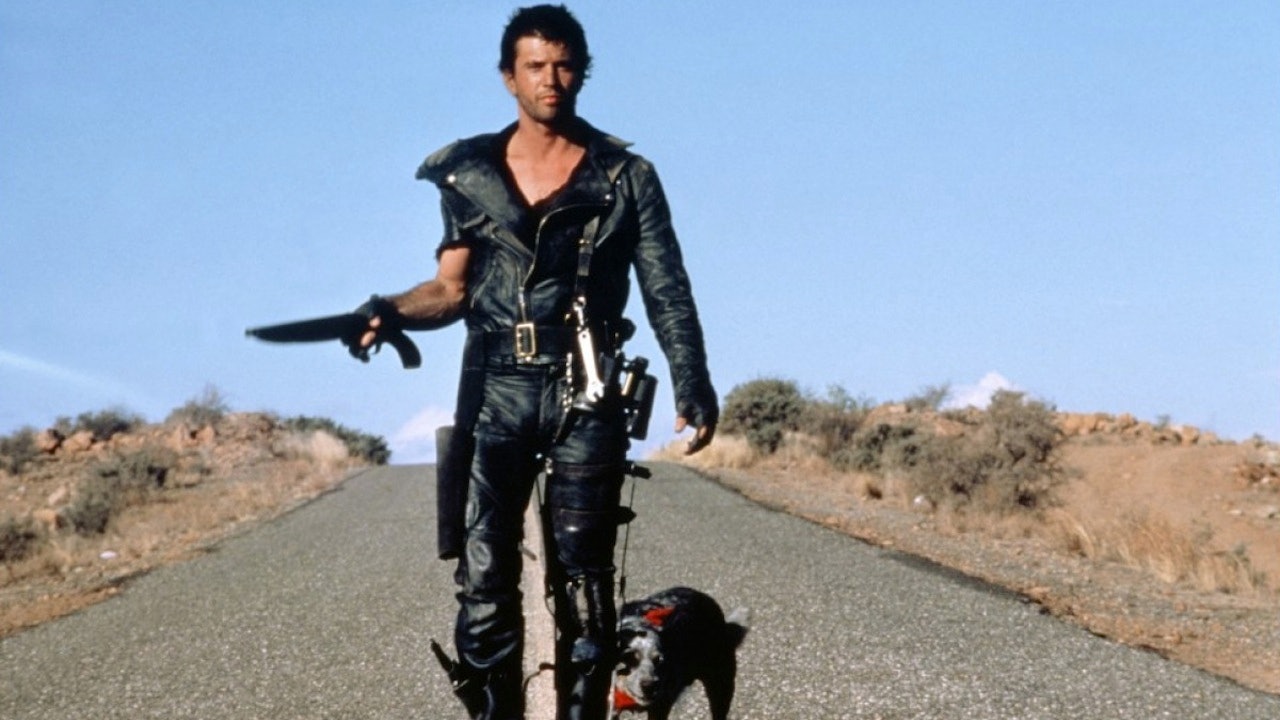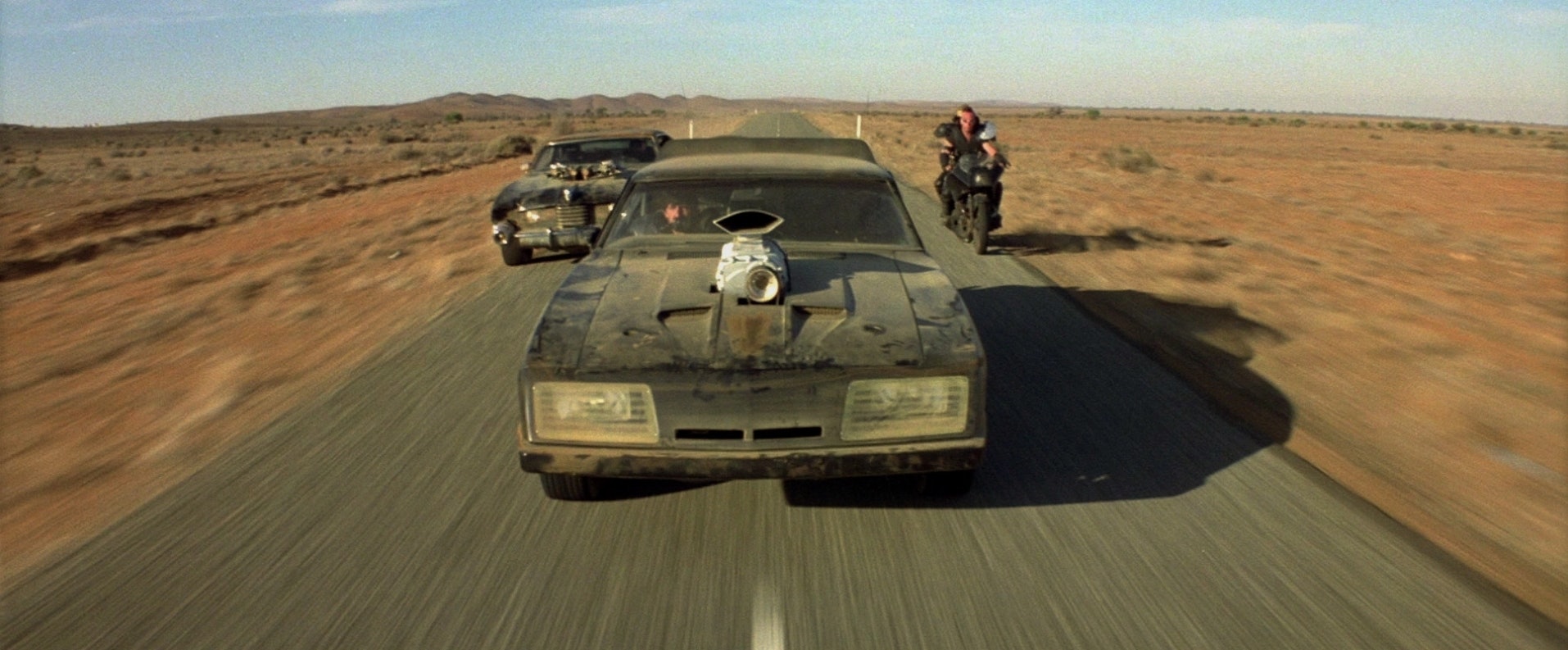
When the world learns that a creator has committed heinous acts or believes terrible things, everyone has to choose if and how to engage with their art. Movies, as ensemble productions, further complicate the issue. The medium’s very nature makes movies far too large for any one player to take all the credit.
Take a movie like George Miller’s Mad Max 2: The Road Warrior. Yes, the raging anti-Semite Mel Gibson is the star. But Miller feels like the real genius, conducting an orchestra of fantastic violence and epic setpieces around a stoic centerpiece. Max is unknowable, a man forsaking any chance of identity. He’s a blank slate as wide as the Australian outback, which gives Road Warrior a stunning canvas for Miller to paint a masterpiece on.
Early American ads for the film saw Miller’s slate as so blank they didn’t even include the words “Mad Max.” American audiences only came to understand that the movie was a sequel in their seats, as a narrator (Harold Baigent) describes a post-apocalyptic world where gasoline has become the ultimate currency and cars the only means of survival. The narrator berates the old world, saying it was destroyed despite all of their “talk, talk, talk.”
Talking is certainly not something Max does. He barely speaks more than a sentence at a time, and he seeks no companionship beyond his dog, but the cruel gangster Wez (Vernon Wells) wants his gas. After defeating his cronies, Max finds an old gyrocopter. He sees in the gyrocopter what he sees in everything: More gas. But a snake stands in his way.
The snake belongs to the Gyro Captain (Bruce Spence), a wily ball of energy who challenges Max with an arrow gun. The Captain dresses in bright colors and never shuts up, a perfect match for the silent, dour Max. They start in deep opposition, eager to abandon the other as quickly as possible. After one-upping the Captain, Max only saves his life after he promises to lead him to a working oil refinery, offering Max all the gas he could possibly need.
The two find the spot quickly. But not only is it occupied, it’s under attack by Wez and other punk marauders who follow a cultish mask-wearing strongman who goes by The Humungus (Kjell Nilsson). The Humungus declares war on the people within the refinery, offering them the choice to become unharmed refugees or dead defenders.

Hearing about The Road Warrior’s plot doesn’t capture the experience of watching it. There’s Brian May’s gripping score, and director of photography Dean Semler’s shaky handheld approach gives an immediacy to the battles. Semler would later credit Miller for teaching him “a lot about danger.”
Then there are Norma Moriceau’s stunning costumes. Responsible for the punk/BDSM look that would define the Mad Max franchise, Moriceau worked within the London punk scene founded by Vivienne Westwood and Malcolm McLaren and brought their look back home to Australia. As wardrobe master Roger Monk recalled in an obituary, “Norma knew all these weird artisans in Sydney and we’d hit their workshops or garages to collect stuff. They all adored her.”
Moriceau’s connections paid off. The visual language of Mad Max 2 becomes these stunning outfits repeatedly battling each other to the death. Miller moves with a John Carpenter-like efficiency, quickly establishing plots and perpetually capturing the eye. From the discovery of the gyrocopter, Road Warrior reveals one curious thing after another, from a colorful cast of characters within the compound to The Toadie (Max Phipps), a gang crier who announces Humungus as the “Ayatollah of Rock and Roll-ah.”
The energy snowballs, but the human touch is always present. Everything feels like it was built by a person, which makes you feel every bullet and arrow fired. Supplies are limited, even in armies. A single shotgun pellet is worth fighting over.

The colony is run by Papagallo (Michael Preston), a leader who suffers not from a lack of bravery or care for his people, but for the way he sneers at Max. Although he ultimately comes to view Max as honorable, he’s disgusted by someone who would rather act alone than join a collective. He demands Max explain himself, to imagine a future beyond the Wasteland, which is simply beyond Max’s conception of self. He is the Wasteland.
Gibson, for his part, is effective. As he slowly lets the people around him become partners, his smile hints at the action-comedy star he would become. His face is one of frustration but directness. He’s the last resort, and he knows it. But The Road Warrior surrounds him with so much vivid creation that he’s easy to fade into the background. His character practically guarantees it.
Mad Max 2: The Road Warrior is streaming on HBO Max until August 31.







